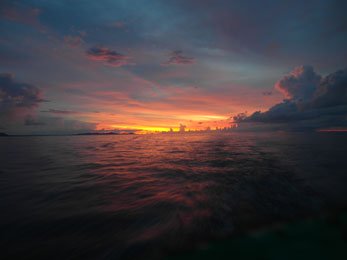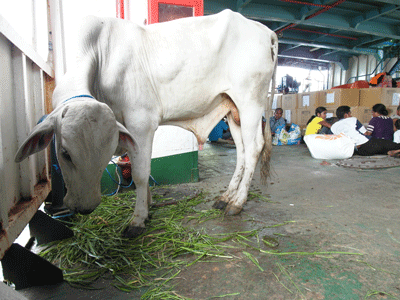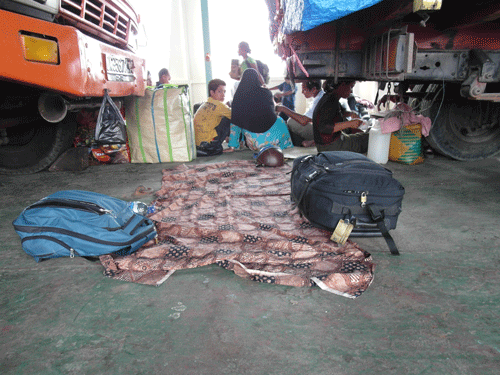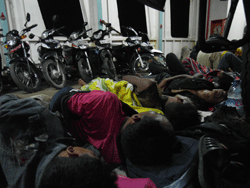Many of you will be familiar with Indonesia’s approach to timekeeping, affectionately known as “rubber time”. Like rubber (and the patience of many Indonesians), it can be stretched almost infinitely. Unlike rubber, it tends only to stretch in one direction. Buses start filling up on a notional schedule but don’t leave until they are full; ferries board passengers from a given time, but probably won’t ship out until the tide is right. Meetings are set for time x, and start at time x plus however long it takes the most important person to arrive.
I’ve had the pleasure of waiting 18 hours for a Pelni passenger ferry (and Pelni is historically probably Indonesia’s most reliable transport company). So I wasn’t surprised last week when I arrived at the port at Belitung, in Western Indonesia, to see no boat. I scanned the horizon; it wasn’t even in view, which means it will be another three hours at least. I was a little more surprised not to see any other passengers, but then my Pelni experience had all been on the other side of the vast gulf that divides neglected Eastern Indonesia from the sophisticated West. There are four direct flights a day from Belitung to Jakarta — not an option in most of Eastern Indonesia. They are cheap, take only an hour, and some of them even leave on time. With that on offer, why would anyone choose to spend 12 hours rolling about on a boat, and untold hours waiting for it?
I want to take the boat precisely because I want to compare the Pelni experience in Eastern and Western Indonesia. The port staff are there; one is asleep, the other fanning himself with a newspaper. Oh dear, I might be here a while. And the dock is 30 kilometres from town, so I can’t even sit gossiping while I wait with the owner of my favourite Belitung coffee shop, who happens to moonlight as a parliamentarian. “So when might it grace us with its presence?” I ask the news fanner. “What, the boat to Jakarta? Aduh! It’s already left, bu!” And then, reassuringly: “But don’t worry, there’s another boat next week.” I can’t believe my ears. I’m sure they couldn’t believe theirs, either, when they heard my colourful response. The ferry left four and a half hours before the scheduled time published on the internet that morning, and three and a half hours before the time printed in the newspaper the day before. Twenty four years into my co-dependent relationship with Indonesia, I have learned that rubber time can indeed stretch in both directions.







